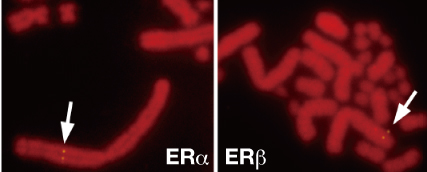KATSU, YoshinaoProfessor
Steroid hormones regulate physiological responses in vertebrates by binding to the steroid hormone receptors (SR), a ligand-activated transcription factor. To understand the evolution of vertebrate SRs and to investigate how steroid hormones act in many vertebrates, we used PCR-based cloning technique to isolate cDNA encoding SR from various animal species (fish, amphibian, reptile, bird and mammal). Our data provide basic tools that allow future studies examining receptor-ligand interactions and highlight the importance of comparative experimental approaches for the evolutionary study of endocrine systems. We also analyze the sex-differentiation mechanism of reptile.
The following projects are currently emphasized: 1) Molecular evolution of steroid hormones and their receptors. 2) Examination of species-specific differences in their response to various environmental and endogenous chemicals. Many pesticides and industrial chemicals can cause the effects on reproduction, development, and behavior, because they mimic the actions of steroid hormones. However, the molecular basis for the action of environmental chemicals remains poorly understood. Using the reporter gene assay system, we examine the species-specific differences in their response to various environmental and endogenous chemicals. 3) Molecular mechanism of sex-differentiation of alligator. In alligator, sex is determined by incubation temperature of the egg during a specific period of embryonic development. The mechanism of this “temperature – dependent sex determination” system is poorly understood. To analyze the molecular mechanism of sex-differentiation of alligator, we now focus on the functions of steroid hormone receptors and AhR-arnt complex.
Chromosomal localization of estrogen receptor alpha (ERα) and ERβ genes in the four-striped rat snake. ERα and ERβ genes were mapped to the short arm and the long arm of chromosome 1, respectively.
Those who are interacted in our projects and in the filed of molecular evolution of steroid hormone receptor based on comparative endocrinology, please feel free to contact me by e-mail. We always very welcome to discuss and work with highly-motivated and hard working students and researchers across national borders.
References
- Katsu, Y., et al. (2010) Estrogen-dependent transactivation of amphioxus steroid hormone receptor via both estrogen- and androgen-response elements. Endocrinology 151, 639-648.
- Katsu, Y., et al. (2010) Molecular cloning, characterization and chromosome mapping of reptilian estrogen receptors. Endocrinology 151, 5710-5720.
- Katsu, Y., et al. (2008) Molecular cloning, characterization and evolutionary analysis of estrogen receptors from phylogenetically ancient fish.Endocrinology 149, 6300-6310.
- Katsu, Y., et al. (2008) Molecular cloning and characterization of estrogen, androgen and progesterone nuclear receptors from a fresh turtle (Pseudemys nelsoni). Endocrinology 149, 161-173.
Faculty
Faculty of Science
Department of Biological Sciences
Reproductive and Developmental Biology
Grad School
Graduate School of Life Science
Division of Life Science
Biosystems Science Course
Contact Information
Faculty of Science, Building #5 5-1008
Email: ykatsu ![[atmark]](https://www2.sci.hokudai.ac.jp/dept/bio/wp/wp-content/themes/sci-bio_2407/img/atmark.png) sci.hokudai.ac.jp
sci.hokudai.ac.jp

